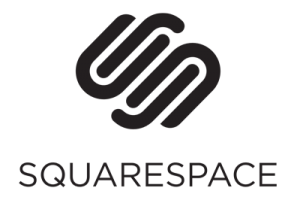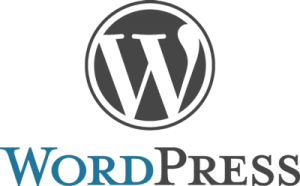Choosing your Website Creator
-

Squarespace:
Squarespace is a website creation service that helps you build your site quickly and easily with their very user-friendly visual drag and drop interface. With Squarespace they offer a total package, you can even register your domain name through their service. It’s relatively affordable, and the templates are absolutely stunning – plus, it offers basic eCommerce for those looking to sell online.
Pricing
Cost is monthly, and varies by your needs. The Business tier is $26/month (18/month if you buy annually)
Pros and Cons
PROS: It’s an all-in-one, and is perfect for the do-it-yourselfer.
PROS: Easy, and fun to use.
PROS: Its trusted, popular, and very well built.
PROS: Lots of premium themes to choose from ($)
CONS: Your locked into Squarespace, and transitioning out could be painful.
CONS: What you see is what you get, and additional custom features may not be possible.
CONS: A monthly bill tends to add up long term.My Thoughts:
I would recommend Squarespace to the do-it-yourselfer, who’s confident and comfortable online, and has some extra time to spare. It’s also better suited to a simple website – if you want a typical brochure style site Squarespace is perfect; but if you want to start adding complex lead generation forms, event calendars and other advanced features, this isn’t your solution. It’s a little more expensive on a month-to-month basis than say WordPress, but that’s the tradeoff for the easy route!
-

Shopify:
Shopify is a Canadian business forging way ahead when it comes to eCommerce. While both WordPress and Squarespace can sell your products, Shopify makes it easy to set up and run, and does so VERY well. Shopify maybe isn’t as flashy as Squarespace, it does have some really nice themes to build a cool online store. But make no mistake – Shopify is here to start an online store – the website creation is a little basic compared to Squarespace.
Pricing
Cost is monthly, and varies by your needs. The basic tier is $29/mo plus transaction fees
Pros and Cons
PROS: It’s an all-in-one, and is perfect for the do-it-yourselfer.
PROS: Premiere eCommerce platform, has everything you need and more!
PROS: Strong analytics for sales reporting
PROS: Tightly integrates with other services, like Mailchimp and Facebook
PROS: Lots of beautiful themes ($) and plugins ($).
PROS: Great relationship with Canada post for shipping estimates and discounts.
CONS: If you’re going to be customizing a lot, plugins can start to add up in cost quickly.
CONS: Great for eCommerce, pretty lackluster for much else.
CONS: What you see is what you get, and additional custom features may not be possible.
CONS: A monthly bill tends to add up long term.My Thoughts:
I’ve used Shopify a bunch and I’m really happy with every project. Just keep in mind that your pages will be pretty basic. It’s the perfect solution for anyone who wants to SELL stuff, and is not really fussed with much else. It’s really easy to get bogged down when running an online store, and Shopify does a really good job of streamlining it all. Shopify is slightly more expensive, but they truly are the eCommerce pros, and in the long term they’re definitely a solid option. A little known gem is that shopify gets a really good Canada Post rate, a huge benefit for online shops. Shopify might not be the best choice for a really complicated eCommerce site (there are more robust options out there).
-

WordPress.com:
Important: the .COM version of WordPress is the website builder service, and is much more limited than its .ORG bigger brother.
Wordpress.COM is like WordPress lite, but is still a really solid choice if budget is your main concern. A WordPress.COM site is super easy to set up, and has all of the basics ready to go.Pricing
WordPress is Free
Pros and Cons
PROS: It’s FREE!
PROS: Easy to set up
CONS: The free tier has ads
CONS: You’re not allowed to use plugins, which are used to add customizations
CONS: You’re stuck with the provided themes, which are used by millions of other websitesMy Thoughts:
Because WordPress.COM is free it’s very, very attractive, but in my experience it fills a really small niche. WordPress.COM is absolutely amazing for personal websites, blogs, or for the hobbyist, but I wouldn’t recommend WordPress.COM for a business unless you’re still in the proof of concept phase, there’s just so many better options!
-

WordPress.org:
Important: the .ORG version of WordPress is the one you download and install on your web server, and is the fully-customizable version of WordPress.
I love WordPress, but I’m the first to admit that it is a hammer in search of a nail. WordPress is hefty, and can do a tonne of different things (there is quite literally a theme or plugin for anything). The million dollar question is do you NEED wordpress? And the answer to that is what do you NEED from your website; do you need complicated content types and relationships, advanced eCommerce, fine-grain control of users and user roles, complex online forms? If you answered NO to the above maybe give Squarespace or Shopify a try first. The power of WP really shines in its ability to do whatever you want. But this comes with a larger upfront pricetag, and potential security risks (WP powers a huge percentage of websites, and is thus a prime target for hackers).Pricing
WordPress is Free to use, however you may want some paid themes and plugins.
Pros and Cons
PROS: You can quite literally do almost anything if you have either cash or time.
PROS: Almost all web designers/developers are familiar with WP
PROS: WP has a very strong eCommerce platform in WooCommerce
PROS: There are a tonne of tutorials online for the dedicated learner
CONS: Doing it yourself is not recommended. In my experience it can be pretty overwhelming for the non-techies.
CONS: Prime target for hackers, which can be mitigated through good security practices.
CONS: It often feels like you’ll need a dozen or more plugins to pull off your super-cool website idea; and that bloat can seriously impact performance.My Thoughts:
WP can be expensive or relatively cheap. But be aware, a lot of those free and even premium themes have a distinct WordPress smell to them; they don’t ‘feel’ like your website; they feel like a template. Because of that I strongly recommend a custom design, and barring that – Squarespace if you can! Not all WP designers/developers are the same, be sure to vet them well. WP is notoriously wild and loose with the quality of coding it allows into the repo. I would choose WordPress if your website has the need for, or the potential need for, advanced features and customizations, and you have a reasonable budget to work with. WP is often touted as being user-friendly, but It’s my opinion that that’s an outdated statement, in 2017 there really are much ‘easier’ platforms to use… granted they can’t offer the same richness that WordPress can.
